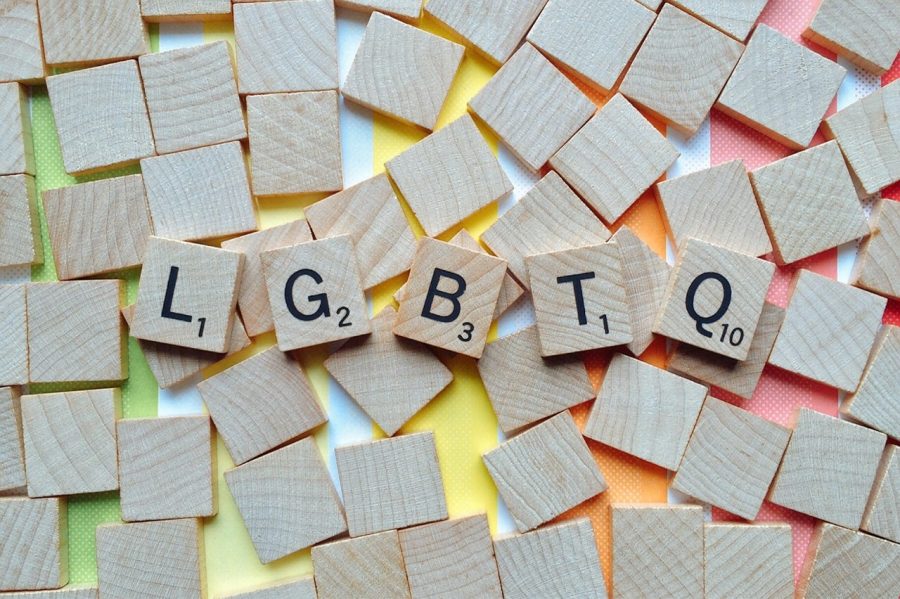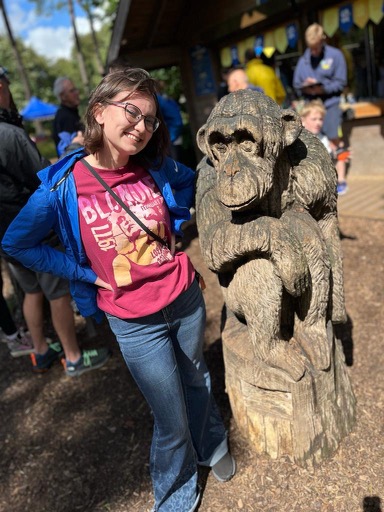Everyday Life for LGBTQ+ Teens
LGBTQ+ People Experience Adolescence Differently
January 18, 2022
Embracing individual identity through media and real life is different for every LGBTQ+ (lesbian, gay, bisexual, trans, queer, plus) teenager.
For many high school students, the story of their gender identity or sexuality began sometime during adolescence. Events – like a crush – trigger a moment of clarity. Others know for their entire lives but wait until middle school or high school to find a word that fits and tell other people.
“I think I was either 13 or 14. One of those two. And I had a thing for one of my friends. And turns out he had a thing for me. We dated for a little while and it was okay,” Junior Ryan Briese said. “But that’s when I really like, realized. There were some times before that where I was like I think I might like guys, but it was that moment in my life that really cemented it.”
Briese is one of many teens that identify as some form of LGBTQ+. He goes by the label of bisexual, meaning he is attracted to more than one gender or two genders, depending on the definition a person chooses to use. He is fortunate to have supporting parents too, which he is grateful for.
“Well, I came out to my mother first when I first knew, and she was supportive and said she would support me. But I was on the fence with my father for a long time. Because I wasn’t really sure how he’d react to it because he lives… not with me,” Briese said. “And I didn’t know how he would take it, because he might have been raised differently because I didn’t really know my father for half my life. But I mean, eventually, I told him, and it turns out, I have a gay uncle, so he was supportive of it, of course.”
Accepting parents are not unheard of, some get to even conversate with their family about their future as a member of the LGBTQ community. Whether it is brought up daily or not, they still feel loved and accepted by their family.
“I’m in an accepting environment in the sense that my sexuality is rarely brought up and when it is brought up, I’m being supported for it,” Senior Uziel Suero said.
Positive coming out experiences with parents are not universal though, another student – Junior Mea Mckenna – is transgender, meaning that her assigned sex at birth does not match with her gender identity. Additionally, she is pansexual, a label that means a person’s sexual interest in a person is not limited by gender or sex.
“I was happy I was discovering myself, but I was sad because I know my parents were going to give me a hard time for it,” Mckenna shared. “Home life is very difficult, but I would say school is a lot better and more open minded towards people in the community.”
Schools can often serve as places of respite for LGBTQ+ teens that do not receive support from their families. Teachers, clubs, and other students are sources of uplift and validation that home life lacks. Mckenna explained that school is still not perfect though.
“I would think most of the people at the school have been supportive, but some of them haven’t responded the best,” Mckenna said. “So, I’ve had to distance myself for kind of fear of being harassed by them.”
Once she is old enough to leave her unaccepting home, Mckenna is braced for the long-term impacts of being trans and trying to transition. She felt the practical effects of being trans outweighed the emotional ones.
“So, practically, probably, I would say is the biggest thing. The most realistic factor because like, financially it is probably going to be kind of a burden since a lot of insurances don’t cover (transitioning),” Mckenna explained.
Practicality aside, Mckenna harbors some concerns about how being trans is going to affect her ability to fit into society. Even regular socializing, as she enters adulthood, has the potential to be negatively affected by her gender identity.
“I think it might also kind of impede my ability to integrate into society as well like with things like finding jobs, going out places in public, and making friends,” Mckenna stated. “I think that’ll be hard emotionally.”
Another transgender teen, Junior Ziel Roman, is facing a more bittersweet issue between their parents and them. Although their mom is very accepting, their father is uncertain about their transition.
“I would not say necessarily accepting because my father is not accepting at all, so I kind of like put that distance between me and him because I wanted to let him know but not basically up front because he’s scary,” Roman shared. “So I do not want to go up front, but I want to create that distance that this is going to be who I am and if you do not accept that that’s fine, just do not take me for granted because I will not be there.”
Briese’s experience with being an LGBTQ+ teen is not without its share of negatives either. While many of his friends were supportive and are also members of the LGBTQ+ community, some responses were less than ideal.
“I was more prone to being kind of bullied or made fun of or picked on,” Briese shared. “People would like, personally attack me on social media, and they would just genuinely be acting different towards me, some people distanced themselves from me compared to before, and some people just cut me off entirely.”
Sometimes friends can have the opposite effect and serve as role models instead. Roman has met someone that goes through the same problems they go through; this results in them looking up to them. Representation within the trans community is somewhat slim, Roman goes into detail on their personal position on this.
“I have not seen a lot of representation with the trans community, but a distant friend of mine is trans and I kind of admire them for being who they are especially with their controversial family opinions and stuff like that, so I look up to them,” Roman said.
Role models also come in the form of stories. For people that live in areas where they experience minimal support, or just people that live in an area without many LGBTQ+ people, representation can be found online. Mckenna discussed one YouTuber that helps her feel represented.
“Jammidodger is a trans man who makes informative and funny videos on the LGBTQ community by using memes to talk about issues,” Mckenna said. “I think he is important because he is a resource for young trans people for education and representation.”
Mckenna also saw her identity represented in the 1983 anime ‘Stop!! Hibari-Kun!’. Television shows and movies are another safe place where LGBTQ+ people can watch characters or relationships they can relate to.
“Hibari Kun is an anime character with parents that don’t approve of her being trans,” Mckenna shared. “She presents at school as female but her father constantly calls her names and disapproves by saying things like Hibari is a pervert, etc. I relate because my parents also act in a similar way to that.”
Briese saw his own sexuality represented in the novel ‘Song of Achilles’ by Madeline Miller. The book is a retelling of the Trojan War and centers on the relationship of Achilles and Patroclus. He felt that the book portrayed a gay relationship without relying on stereotypes either.
“I believe it’s finally like, kind of a representation that I’m actually able to relate to. Because like, I like history. And I like the Ancient Greece time. And it also has to do with (the) LGBTQ community, because Achilles and Patroclus are gay and in love with each other.”
No matter where people see themselves reflected in the media they consume, the happiness that comes along with being able to relate to a person or character is reassuring. Being LGBTQ+ affects every person in a unique way, but almost every story includes some form of apprehension about the future. Representation helps fix this. Mckenna shared her feelings on why representation matters.
“The first time I felt represented in media was on social media. I was excited to learn that there were other people who felt like me,” Mckenna said. “LGBT representation is important because it helps to normalize being queer. I think that it helps (LGBTQ people) realize early on that it is okay to be LGBTQ and lets them know that it is okay and normal for people to be this way.”



